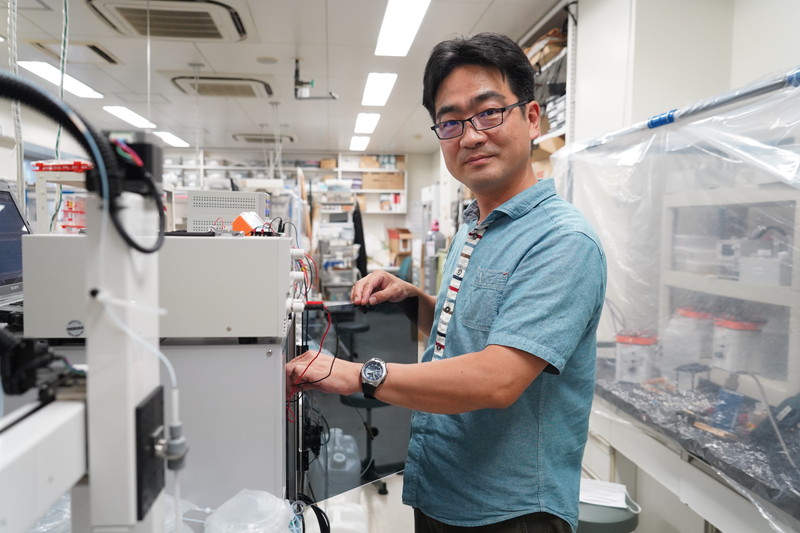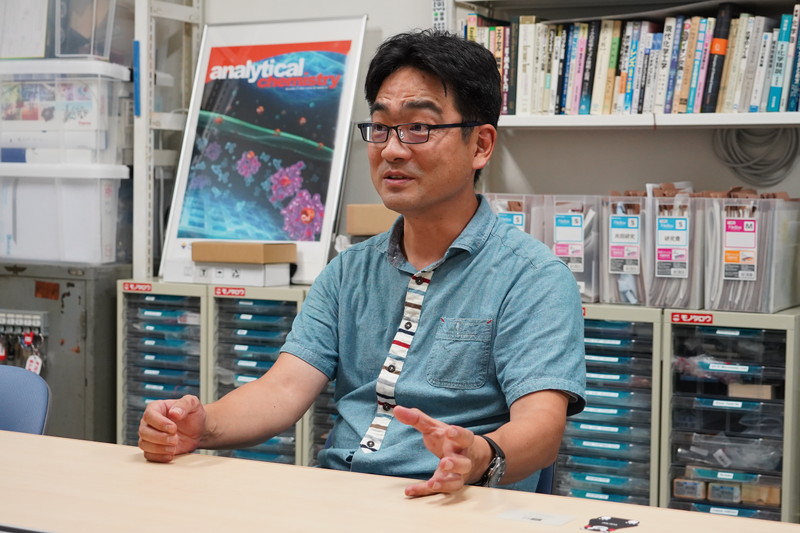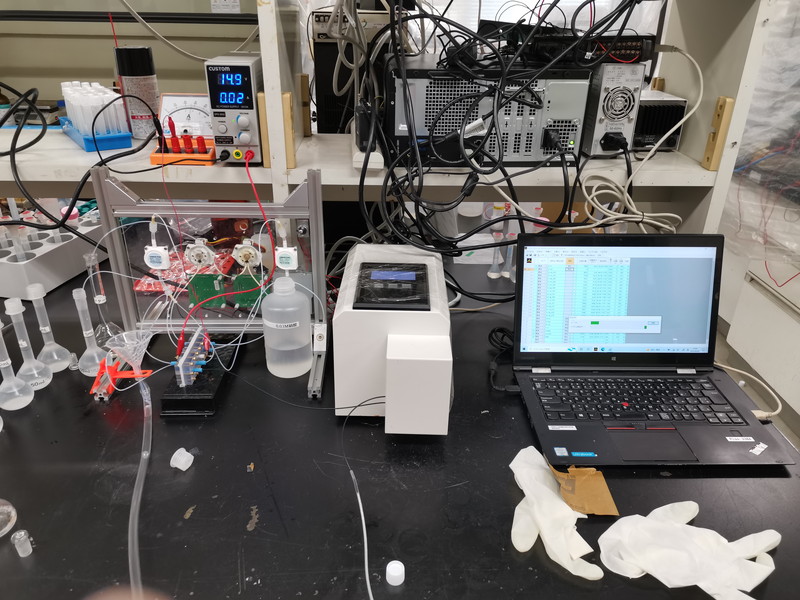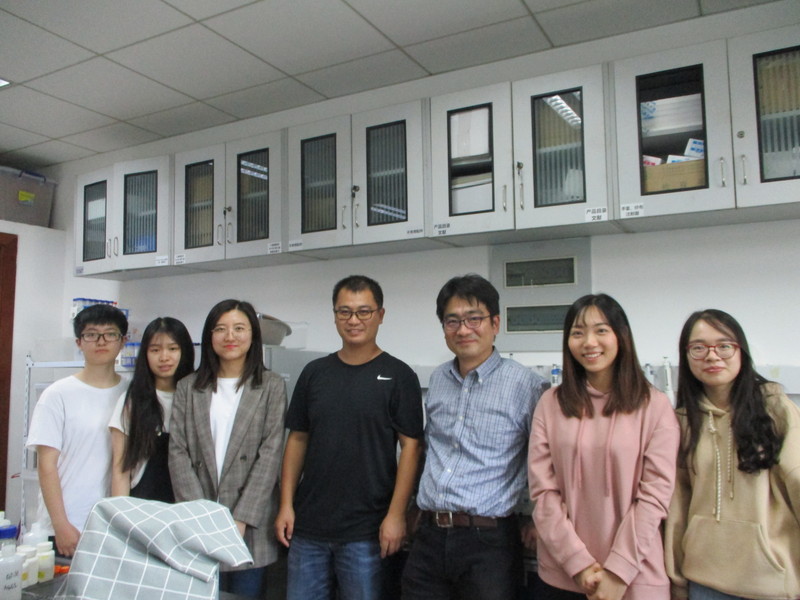NEWS
IROAST Researchers - Prof. Shin-Ichi Ohira
English Japanese
Ionic solutes analysis for contributions to industry and medical fields

Prof. Shin-Ichi Ohira
IROAST International Joint Research Faculty Member
Faculty of Advanced Science and Technology (Faculty of Science)
Humans are said to be made up of 60% water. Furthermore, Earth, the planet where we all live, is called the “water planet.” Water is indispensable to our daily lives. There is a wide variety of research on water, but Professor Shin-Ichi Ohira is conducting research that focuses on the chemical forms of ions contained in water.
■ Starting with ion analysis and expanding into other types of research
Q: Please tell us about your research.
Ohira: I am conducting various research projects on ions. One of these researches focuses on measuring ion components in various samples such as water collected from the ocean, rivers, drinking water, and human urine and blood. The measurements are conducted using instruments, but some samples contain components that degrade the instruments, so those components must be removed beforehand. Currently, this process is performed manually, but we are developing a system to automate these procedures. I am also conducting a research to establish measurement techniques. One technique is to analyte chromium species, tri- and hexa- valent chromium species. Trivalent chromium is required by the human body, on the other hand hexavalent chromium is carcinogenic. Another is a technique to measure trace-level ions not measurable with conventional equipment. These measurements are used in the semi-conductor industry, where products are greatly affected by minute differences in ion levels. I am also engaged in research in the medical field. This research involves purification of radioisotopes to synthesize pharmaceuticals used in Positron emission tomography (PET) diagnosis to investigate cancer. At the start, I was analyzing ions, but my research has since expanded into pharmaceutical synthesis and evaluation of industrial quality.

■ International joint research using the IROAST support
Q: You were at a university in the United States before coming to Kumamoto University?
Ohira: Yes, I lived in the United States for three years from 2006. Many of my current international joint research projects involve members I met while I lived in the US. Up until now, I have conducted joint research using overseas seawater as samples, and I have established measurement techniques with American researchers. Conducting research with people from different fields is interesting because the items measured and the measurement techniques differ.
Q: What are the advantages of international joint research in IROAST?
Ohira: I am able to meet directly with overseas researchers using the IROAST system. Since the COVID-19 pandemic, our interactions have only been online, but discussing matters with other researchers directly and being able to see how the research is progressing deepens our understanding of the research. Sometimes other researchers send me photographs of the analysis equipment, but it is impossible to determine the scale of the equipment and how it works from a photograph alone. Meeting with researchers directly provides access to data not included in papers, and that may lead to new research.
Q: How do you think your research will develop in the future?
Ohira:My research is in a field called analytical chemistry, but I want to expand the research beyond analysis, to develop the possibilities of using ions in areas such as the isolation and synthesis of pharmaceuticals. A student from Indonesia working in my laboratory and a postdoctoral researcher coming from India in September (IROAST Postdoctoral Researcher) are working on research topics that will allow further development of my research. I look forward to seeing how the research will develop with these students in the future.

■ Immerse yourself in your research using the tenure track system
Q: How do you spend your free time?
Ohira: My house is in the countryside, so most of my free time is spent mowing the grass and cutting the weeds around my house (laughs). It isn’t re-energizing like playing sport, but it’s very satisfying when it’s all neatly cut. When I hit a roadblock in my research, ideas can sometimes pop into my head while I’m mowing the grass or cutting the weeds.
Q: What is your message to young researchers?
Ohira: I believe that we all need a period in our lives when we are fully absorbed in something. This chance is available when we’re students, and looking back, I feel that I was more fully immersed in my research when I was at university and while I was in the United States than I am now. It is important to try to learn on your own, even about trifling matters. IROAST has a tenure track system, and taking advantage of that system will allow you to become totally immersed in your field of study.

Reference links
- IROAST Staff - International Joint Research Faculty Member

